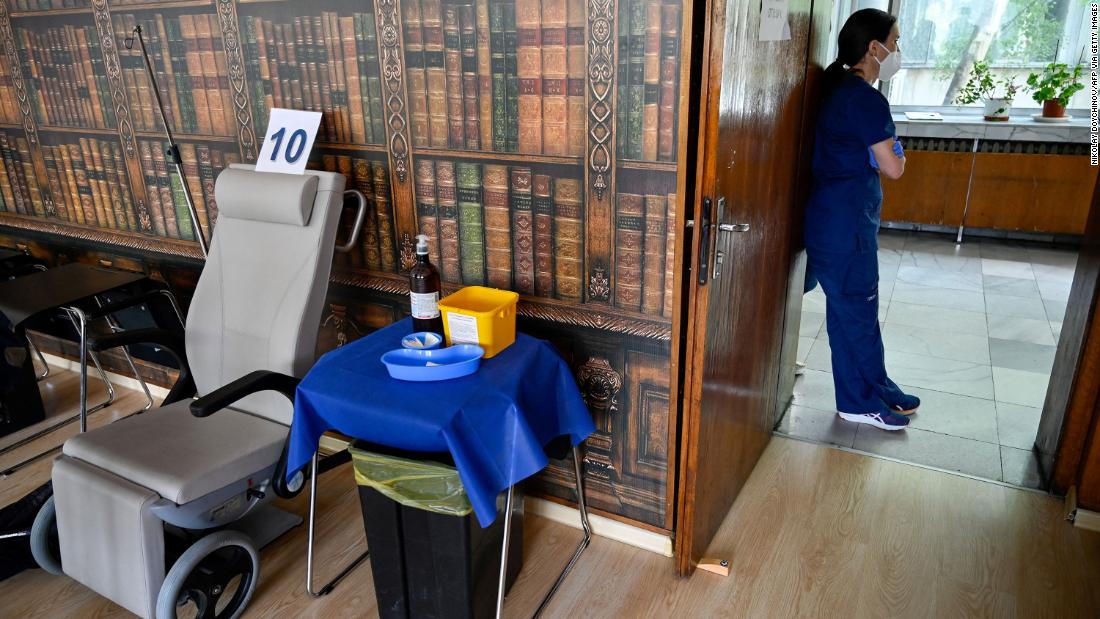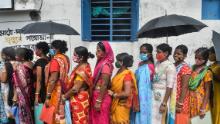Some nations around the world, such as Eire, Malta, Portugal and Denmark, have attained around common vaccination, boasting coverage fees of all over 90%, in accordance to the European Center for Disease Manage (ECDC). On the other side of the bloc, Romania and Bulgaria have totally vaccinated only 33% and 22% of their adults, respectively.
“They have the vaccines. Any individual who needs to get vaccinated can,” Ivan Krastev, a Bulgarian political scientist and a founding board member of the European Council on International Relations, instructed CNN.
As a substitute, Krastev claimed, Bulgaria struggles with deep-seated vaccine hesitancy that is fueled by political instability, conspiracy theories and a absence of religion in the authorities.
“You can find superior amount of distrust, and that goes each for Bulgaria and Romania,” he said. “Even the clinical group, medical professionals, nurses, many are hesitant to get vaccinated, so it really is not a surprise that the culture as a total is too,” he explained.
Each Romania and Bulgaria have been battling spikes in new coronavirus instances considering that early September. Romania has noted about 45,000 new cases and much more than 800 fatalities in the 7 days to Sunday, about the exact stage it noticed at the peak of its second wave of the epidemic in April.
The ECDC warned Thursday that states with small vaccination prices are risking surges in hospitalizations and deaths this tumble if they loosen up social distancing actions.
“In this sort of a circumstance, because of to very substantial virus circulation, completely vaccinated susceptible populations are also at hazard of going through an infection with a severe final result,” the ECDC claimed in its most up-to-date Covid-19 possibility assessment, urging the nations that are struggling with inoculations to try out to fully grasp why their populace remain hesitant and then address individuals problems.
Bulgaria is keeping its 3rd parliamentary election this 12 months in November. Two past votes, in April and then in July, finished in a stalemate, with no governing administration shaped. As a outcome, the state is trapped in a perpetual election campaign with small space for anything at all else.
“There has been significantly more election campaigning than vaccine campaigning,” Krastev said. “Neither the govt that was in electricity nor the caretaker govt designed vaccination a priority.”
Krastev explained the problem of vaccines hadn’t divided Bulgarian modern society along partisan strains, because most folks ended up usually united in their distrust of the political class. “The US has a significant level of polarization here it is not so a great deal political polarization, but confusion and disgust with nearly anything political that really a lot harm the good results of the [vaccination] campaign,” he informed CNN.
Allegations of govt corruption sparked prevalent protests throughout Bulgaria past 12 months. Police reacted with violence that stunned the nation — and manufactured men and women even much more suspicious of the authorities.
The media also performed a function, Krastev mentioned. “In order to make the debate far more attention-grabbing, they would current the professional-vaccine and anti-vaccine views as equally precious, so folks get confused,” he stated.
The Romanian federal government has blamed its very poor vaccination rollout on faux news and conspiracy theories that are getting unfold online.
There are also stark inequalities in the two nations around the world. Roma communities in Romania and Bulgaria are among the the least vaccinated. Dimitar Dimitrov, the director of the Roma Method at the Open up Modern society Institute in Sofia, said the challenge is down to strained associations between the communities and wider society.
“Many Roma neighborhoods in Bulgaria have been issue to lockdowns without the need of proper [explanation] even however the degree of bacterial infections in other parts of the exact municipalities has been bigger. So this attitude from institutions in the direction of Roma persons and Roma neighborhoods demonstrates why Roma you should not rely on establishments,” Dimitrov informed CNN.
Dimitrov reported numerous people, especially in rural areas, might also uncover it tough to entry vaccination clinics. “If you have to get a bus or practice and vacation 100 kilometers to get to the medical center and then wait in the line, that normally takes time and income. The vaccination itself is free of charge but to get to the vaccination level charges dollars,” Dimitrov mentioned.
The Romanian govt recently announced it would set additional sources into guaranteeing people who are unable to entry clinics are capable to get the shots — for case in point by requesting a medical professional to visit them at dwelling.
The East-West divide
But Bulgaria and Romania usually are not the only ones dealing with a hesitancy problem. The European Union seems to be divided into two areas. One particular half has embraced inoculation and received just about anyone immunized. The other is battling to persuade large numbers amid deep distrust in the vaccines.
The dividing line sits around together the Iron Curtain boundary that as soon as break up Europe into East and West.
Of the bloc’s 27 member states, the 15 top rated performers in phrases of inoculation costs are all component of what made use of to be the Western bloc, whilst the base 10 are all previous Communist nations around the world. Greece and Lithuania are the only two international locations bucking the craze, with Lithuania placing 16th and Greece 17th.
All of the previous Western nations around the world, with the exception of Greece, have entirely vaccinated at minimum 70% of their grownups. None of the Eastern states have arrived at that threshold however.
Krastev mentioned the way the pandemic unfolded across distinct nations around the world could be a single factor detailing the dissimilarities. “The international locations that bought hit by the 1st wave a lot more, in 2020, when the shock was stronger, international locations like Italy or Spain, they have additional achievements with vaccination in general than the nations that ended up strike by the second wave,” he explained, introducing that the Bulgarian federal government never ever managed to encourage individuals that a high vaccination charge was a top precedence.
“Alternatively it grew to become the issue of national pleasure that we hardly ever had lockdown,” he said.
Anna Nicińska, an assistant professor at the School of Financial Sciences at the University of Warsaw, has studied the causes for vaccine hesitancy and stated that historical past also plays a main function in influencing people’s selections.
Nicińska and her colleagues looked at details on trust in health and fitness treatment devices and healthcare authorities from 100 nations around the world and identified that distrust was a great deal increased in nations that experienced skilled Soviet-design communism in the previous. People who experienced had firsthand working experience of staying lied to by their governments struggled to have confidence in the authorities, even several years right after revolution, she stated. The extended folks lived less than communism, the increased the mistrust.
“Persons exposed to Soviet Communism are less trustful in other men and women, the government and also the well being treatment techniques, [the experience] instills mistrust in the general public area and [anything] formal,” she stated.
Nicińska said this was one cause why rigid vaccine requirements may well not guide to noticeably increased uptakes in this kind of international locations.
“A vaccination choice is dependent on have faith in and earning it obligatory would be counterproductive, you have to don’t forget that in a lot of international locations there is certainly a extensive tradition of resistance to the state, so men and women would obtain a way to stay away from obligatory vaccination.”
The European Commission has acknowledged the very low vaccination costs in some of its member states as an problem.
“As extended as the virus is not defeated in all member states, the virus is only not defeated,” a Fee spokesperson told CNN in a assertion. The Commission stated countries that are struggling to enhance vaccination concentrations must concentrate on campaigns specifically targeting those who are hesitant, and tension the worth of science.


